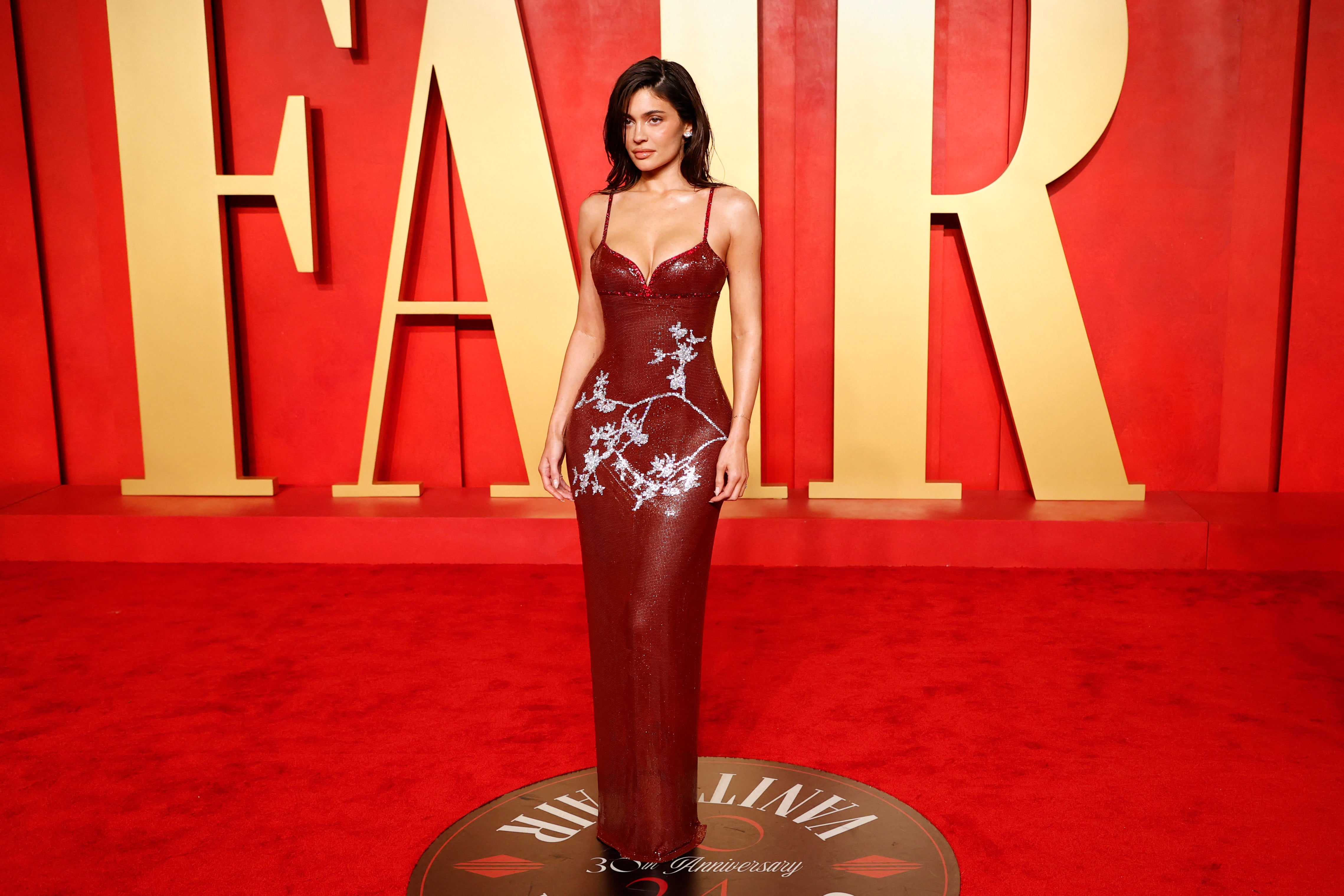Instead of criticising women for the way they look, we should be interrogating the wider social conditioning that’s compelled them to look that way in the first place, writes Olivia Petter

Kylie Jenner at Paris Fashion Week in January. Through tears, she told her sister Kendall about the impact comments about her appearance had on her (Alamy)
In any conversation about beauty standards today, it won’t take long for someone to mention the Kardashians. Love them or hate them, few can deny that the famous family are pop-culture behemoths, with their various ventures shaping and defining the way millions of people across the world live their lives, including the way they look.
If it isn’t about their bodies, which have changed significantly in recent years, it’s about their faces. Or it’s about the clothes they’re wearing (or designing), and the makeup they’re applying (or creating). The point is that, as a result of the sheer influence these women have on society, they have also become a scapegoat for everything that’s wrong with that society.

Kylie Jenner has been trolled over her appearance in pictures taken in January, when the starlet attended Paris Fashion Week (Alamy)
The Kardashians have been blamed for a rise in the use of the weight-loss drug Ozempic, for example, and they have also been accused of setting unrealistic beauty standards thanks to the litany of cosmetic procedures they’re suspected to have had over the years. The sister who has borne the brunt of this most viscerally is the youngest – Kylie Jenner.
A reminder of this came by way of the latest episode of The Kardashians, in which the mother of two confides in her sister Kendall about the impact internet trolling over her appearance has had on her. “I guess it does affect me,” she said. “And then I’ll see some comments, and some people will be like, ‘This is really mean,’ and defend me. ‘Why are we talking about her looks? It’s 2024.’ And then I’ll see other comments like: ‘Because she did it to herself – she f***ed up her face, she had so much surgery.’”

Kylie has opened up about having breast augmentation surgery at the age of 19 (AFP via Getty)
The Kylie Cosmetics founder continued: “Even if I did get ‘so much surgery’ and all these things, I still don’t think it’s OK to talk about someone’s looks. People have been talking about my looks since I was 12, 13 – before I even got lip filler, people were talking about my looks.”
She has a point. At just 26, Kylie has been through several transformations in the public eye. After initially denying it, she has opened up about having breast augmentation surgery at the age of 19, as well as lip filler. The photos that prompted the trolling she refers to were taken in January, when the starlet attended Paris Fashion Week. Yes, her face did look different, and yes, it did seem like she might have had some more work done. But did she really deserve to be eviscerated online over those suspicions?

Kim Kardashian has come under fire for claiming that she only has ‘about 10 years where I still look good’ (Getty for The Met Museum/Vogue)
Kylie had an upbringing few of us can understand – one that would have come with inordinate pressures and standards to live up to, as set by her older sisters; Kim, Kourtney and Khloe were all adults by the time Keeping Up with the Kardashians started in 2007. With this in mind, should we really be laying all the blame on the youngest of the clan? The one who didn’t really seem to have much of a say in her family’s pursuit of fame?
After all, when you compare her with some of her family members, Kylie is hardly the one espousing harmful messages about beauty standards. Consider Kim’s recent remarks about being a film star: “I can do a movie a year; I’ve got about 10 years where I still look good,” she said. “I feel like you need less Botox for more emotion, and I don’t have it. I’m not gonna be gaining 500lb for a role… that’s not where I need to be.” It was also just two years ago that Kim confessed she’d “eat poop every day” if it helped her to look younger.

The Kardashians have been blamed for a rise in the use of the weight-loss drug Ozempic (AFP via Getty)
That’s not to say anyone should be attacking Kim over Kylie. My point is that, instead of tearing down women for the way they look, a more beneficial conversation would be to interrogate the wider social conditioning that’s compelled them to look that way in the first place.
In Kylie’s case, it’s not hard to see where that conditioning might stem from. And while the brazenness with which Kim approaches the subject might, on the one hand, be refreshing, it’s also alarming. We should be interrogating and asking questions about that. As for dissecting and speculating over the nuances of one woman’s face, that’s not really helping anyone.





